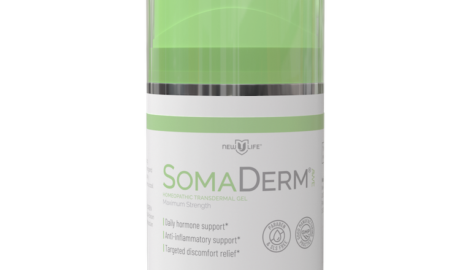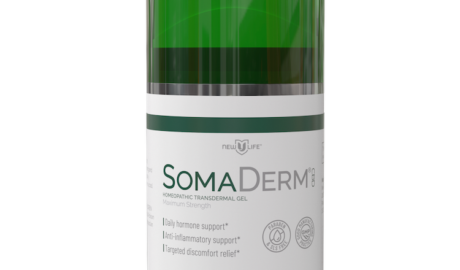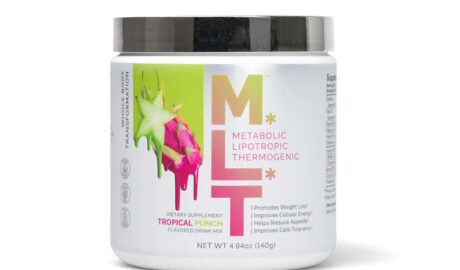Fluoride has long been used as a cavity-fighting agent. However, in recent times, it has come under fire. Although medical professionals and The Centers for Disease Control and Prevention (CDC) see fluoride as a cost-effective and beneficial ingredient to preventing cavities and supporting healthy teeth and gums, lawmakers are telling the CDC to stop recommending fluoridation for drinking water in communities, and it has even been banned in Utah as of May 7, 2025.
Although controversial, these moves can make accessing fluoride in dental products challenging. So what’s the alternative? Hydroxyapatite toothpaste may be a viable solution.
This article will answer the question, “What is hydroxyapatite,” and explain how it can benefit dental health.
The Problem with Fluoride
The CDC, the American Academy of Pediatrics, and the American Dental Association (ADA) all support fluoride as an effective and safe way to maintain dental health. It naturally occurs in drinking water, making it an affordable solution. The mineral may be the only oral health protection for families who can’t afford regular dental visits.
However, Robert F. Kennedy, Jr., the U.S. Secretary of Health and Human Services under President Donald Trump, believes that fluoride is industrial waste and a possible carcinogen. Some studies have also suggested it may be linked to lower IQ rates.
Although the potentially harmful impacts of fluoride are not clinically proven and based on only a handful of studies, the relevant research has had a significant effect, leading Utah to ban fluoride, with Florida and Ohio considering similar legislation.
Individuals have varying opinions on fluoride, but regardless of which side of the coin you fall on, the current political climate could make the mineral less accessible. You must consider your alternatives for a healthy cavity-fighting agent. Hydroxyapatite toothpaste could be the solution.
What is Hydroxyapatite?
When considering the answers to the question, “What is hydroxyapatite,” there are several details to consider. Hydroxyapatite is a calcium-phosphate mineral that supports the structural hardness and integrity of bones and teeth. It can be made synthetically from chemical salts. However, synthetic processes can lower calcium levels. Purer forms of the mineral can be extracted from coral, seashells, bovine bone, and eggshells.
The mineral is often added to toothpaste to prevent cavities and reduce tooth sensitivity. It has also been used as an implant in bone and dental surgeries. Hydroxyapatite may also be taken as a supplement to help slow the progression of osteoporosis.
Hydroxyapatite reduces bone resorption, the body’s process of breaking down bones to ensure sufficient calcium in the blood. It contributes to bone mineral density and stronger bones.
A 2021 study supported the efficacy of hydroxyapatite toothpaste, comparing it to fluoride toothpaste. 2022 research also noted its benefits as a dental health aid. Still, it focused on issues of concern, including the prevalence of synthetic hydroxyapatite, which may contain impurities and undergo high degradation. However, these issues are more significant in hydroxyapatite-related surgeries than the minerals’ dental health benefits.
What is the Best Hydroxyapatite Toothpaste?
The future of fluoride toothpaste is unclear. In the meantime, many manufacturers are preparing for a potential update in dental health regulations by offering hydroxyapatite toothpaste products. But which is the best hydroxyapatite toothpaste?
RiseWell, a leading beauty and personal care brand, offers formulas to support dental health in children and adults.
- RiseWell Mineral Toothpaste: The hydroxyapatite-based mineral toothpaste from RiseWell is clean, safe, and effective at strengthening, mineralizing, and protecting teeth.
- RiseWell Kids Mineral Toothpaste: This version offers the same benefits as the RiseWell Mineral Toothpaste, but it is kid-friendly and has a delicious cake batter flavor.
With much uncertainty surrounding fluoride toothpaste, many are switching to hydroxyapatite. It’s safe, effective, and clinically proven to support dental and bone health. Will you integrate it into your health routine?
FAQs
What are the Disadvantages of Hydroxyapatite?
Hydroxyapatite has no known safety concerns. However, even the best hydroxyapatite toothpaste may cause mild digestive issues when used orally. Improperly manufactured bovine-sourced supplements also carry the risk of mad cow disease.
Can You Use Fluoride and Hydroxyapatite Together?
Yes, fluoride and hydroxyapatite can be used together. Some studies suggest a synergistic effect, where fluoride strengthens enamel, and hydroxyapatite further enhances its resistance to decay, promoting remineralization.
What are Other Fluoride Alternatives?
Hydroxyapatite toothpaste may be the best fluoride alternative, but there are other methods; for example:
Xylitol may prevent tooth decay. Try NOW Foods XyliWhite Toothpaste Gel, a natural whitening, fluoride-free product for kids and adults alike.
Coconut oil and other oils may remove bacteria, plaque, and toxins. Try Dr. Ginger’s Coconut Oil Toothpaste with White Charcoal, a deep-cleaning detox formula.
Erythritol is a popular cavity-fighting ingredient. Try Xlear Spry Xylitol Toothpaste Fluoride Free, a sugar-free and fluoride-free product that contains erythritol and a refreshing mint flavor.
Baking soda is often used as a toothpaste alternative to clean teeth. Eco-Dent DailyCare Baking Soda Toothpowder is a 100 percent cruelty-free tooth powder that is fluoride-free, SLS-free, and free of dyes or sweeteners.
Neem has natural antibacterial properties. Try NOW Foods XyliWhite Neem & Tea Tree Toothpaste with Mint Flavor.
In addition, arginine may reduce cavity risk, and green tea can inhibit plaque.
Good oral hygiene includes flossing and brushing your teeth regularly. For a healthy mouth, teeth, and gums, you need germ-killing toothpaste and a good toothbrush you can rely on that will be safe on tooth enamel and appropriate for even the most sensitive teeth. Natural ingredients are preferred, but perhaps your oral healthcare routine may need a little tweaking.
Although these oral care alternatives are promising, consulting with a dental professional before incorporating them into your oral health routine is advisable.





